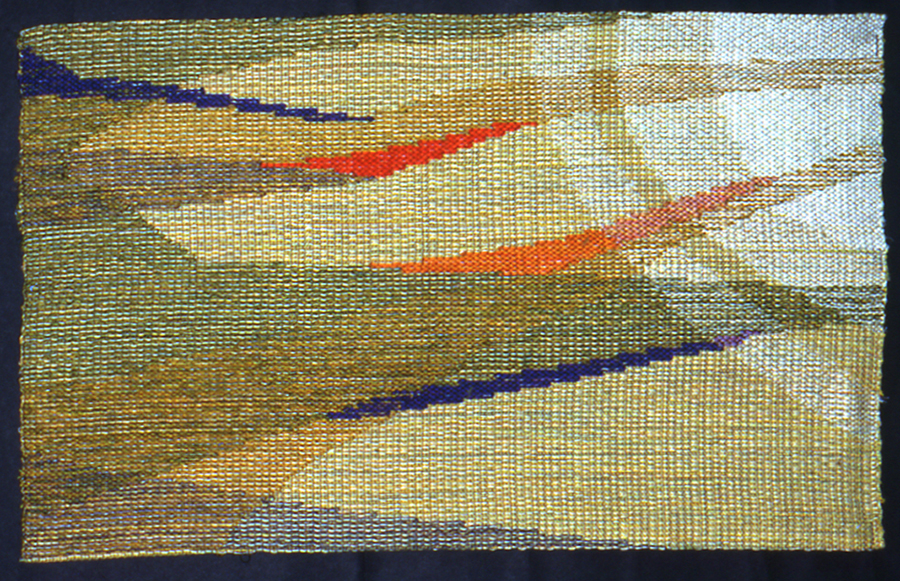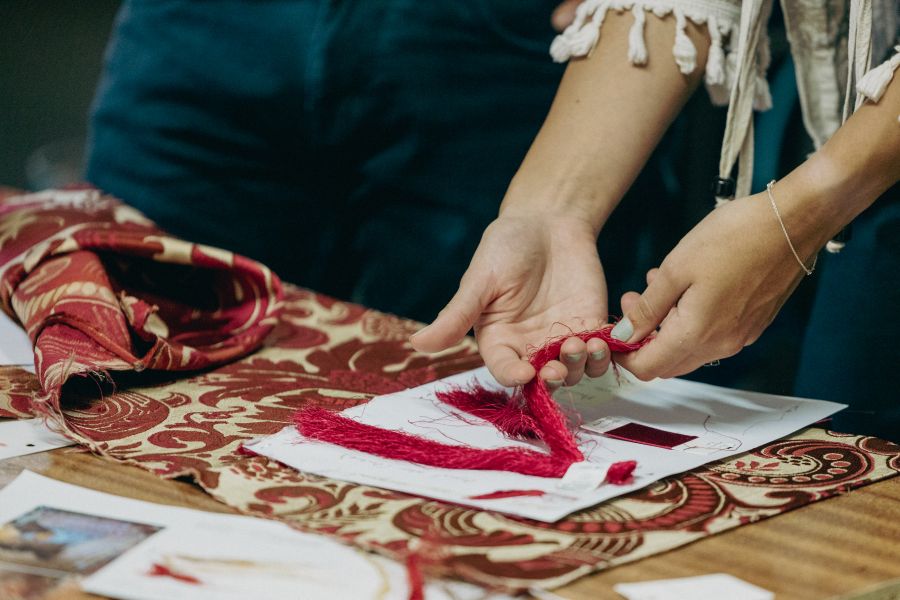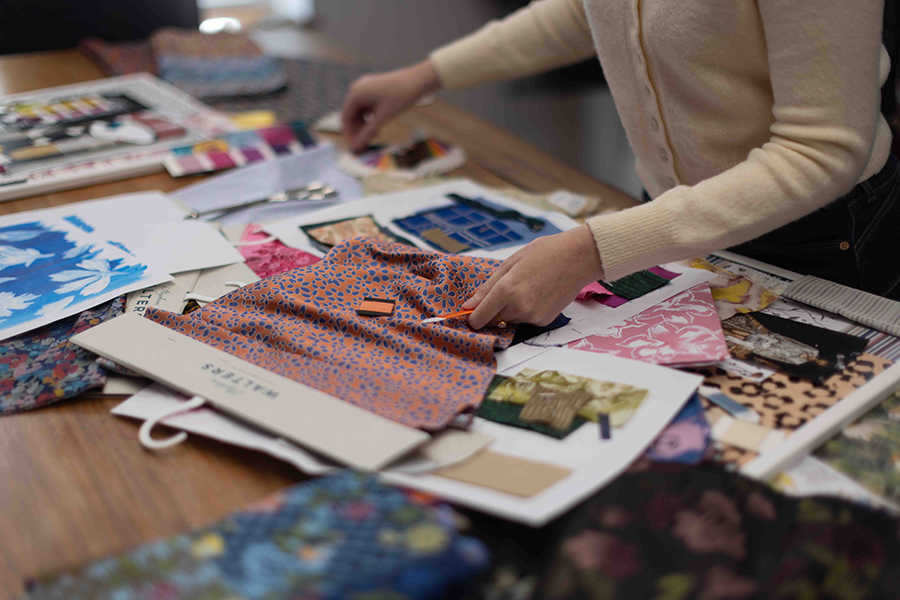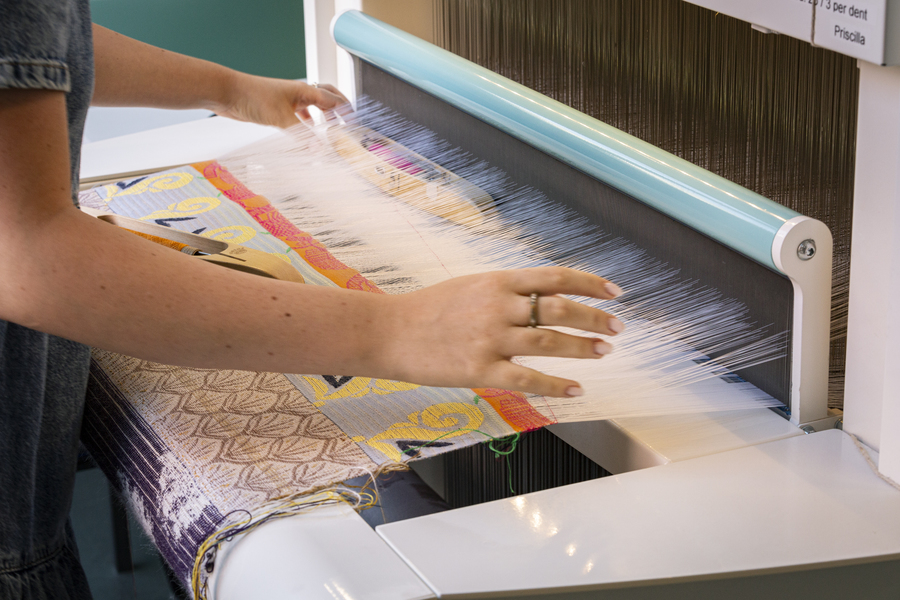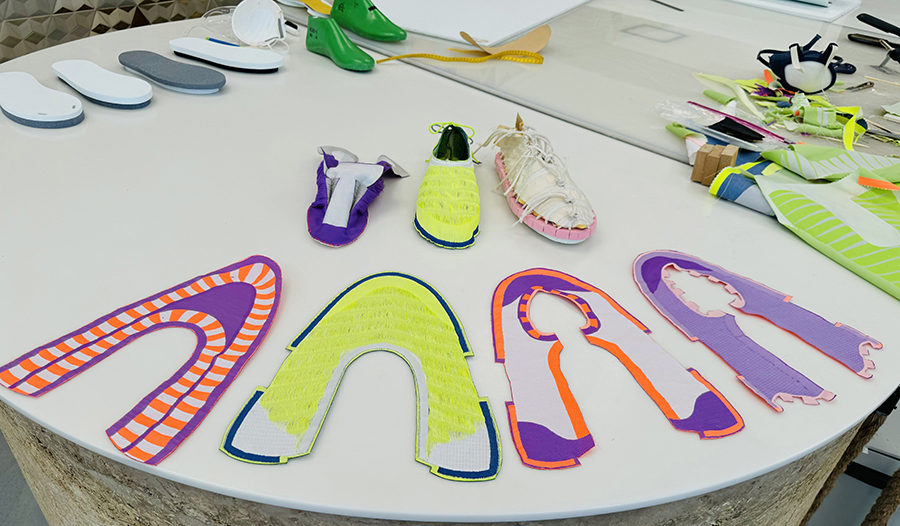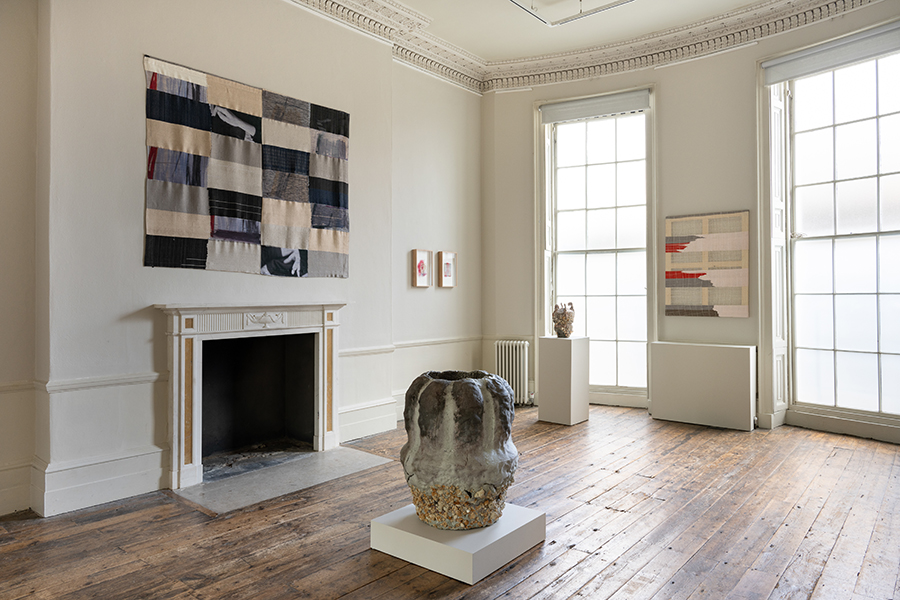 Tristan Hoare is delighted to present a dual exhibition of works by French weaver Marie Hazard and ceramics by Japanese artist Masaomi Yasunaga, curated by Sonya Tamaddon. Both threading and ceramics embody notions of being enmeshed, finding connections, coming apart, thus disclosing multiple incarnations, formats, densities, and textures. In the woven works of Hazard and in the ceramic vessels of Yasunaga, the artists make a poignancy of the familiar by allowing rituals of life and their affiliated embellishments to be misconstrued. Both artists engage in radical acts to bring their artworks to life, stripping their chosen mediums of their centuries-long ties to function.
Tristan Hoare is delighted to present a dual exhibition of works by French weaver Marie Hazard and ceramics by Japanese artist Masaomi Yasunaga, curated by Sonya Tamaddon. Both threading and ceramics embody notions of being enmeshed, finding connections, coming apart, thus disclosing multiple incarnations, formats, densities, and textures. In the woven works of Hazard and in the ceramic vessels of Yasunaga, the artists make a poignancy of the familiar by allowing rituals of life and their affiliated embellishments to be misconstrued. Both artists engage in radical acts to bring their artworks to life, stripping their chosen mediums of their centuries-long ties to function.
Hazard and Yasunaga embody the spirit of termite artists, a term coined by Manny Farber in 1962 to articulate an artist’s lack of ambition towards gilt culture but rather a squandering, beaverish endeavour in their approach to art-making. While pottery is typically formed by clay, fired in a kiln and sealed with a finishing coat of glaze, Yasunaga employs glaze as his primary material from which he builds his sculptural works, enlisting fire as his sculpting tool. Each fragile glazed construction is prepared for firing by an act of burial under protective layers of sand and kaolin which organically fuse together in the kiln. After ceding a measure of control to fortuity in the firing stage, Yasunaga unearths the object, enacting a ritual performance of interment, transformation, exhumation. This process is influenced by the Japanese doll making method of Hariko, a papier-mâché technique introduced to Japan between the 8th and 12th centuries.
In the spring of 2020 Yasunaga introduced found stones and mosaic tiles into this practice. Deepening both the notion of the termite process to the work and an element of chance, Yasunaga began deploying tiles to the surface of his works prior to firing them. Yasunaga recalls, “this discomfort indicated the possibility that my own boundaries of beauty existed around the periphery.” In his practice, objects once functional with human activities are reconsidered in a state of material death and it is through this process the artist’s pursuit of beauty lies. With these innovations in non-functional, expressive ceramics, Yasunaga extends the influence of this process into the 21st century towards a significant collective reconsideration of what ceramic sculpture has been throughout its history and what it can become.
This notion of time and materiality also lies central to Hazard’s practice. Hazard’s medium of choice is weaving, drawing upon studies of pastel on paper, photography, painting, printmaking, and literature as research materials to inform her works conceived on the loom. Etymologically the word “text” is derived from the Latin word “texere” meaning woven. Pre-Columbian textiles were made for communication prior to the adaptation of written language. If one looks closely they may find a phrase by Rimbaud delicately disguised into Hazard’s weavings – “on ne part pas” (we are here forever). Continue reading →
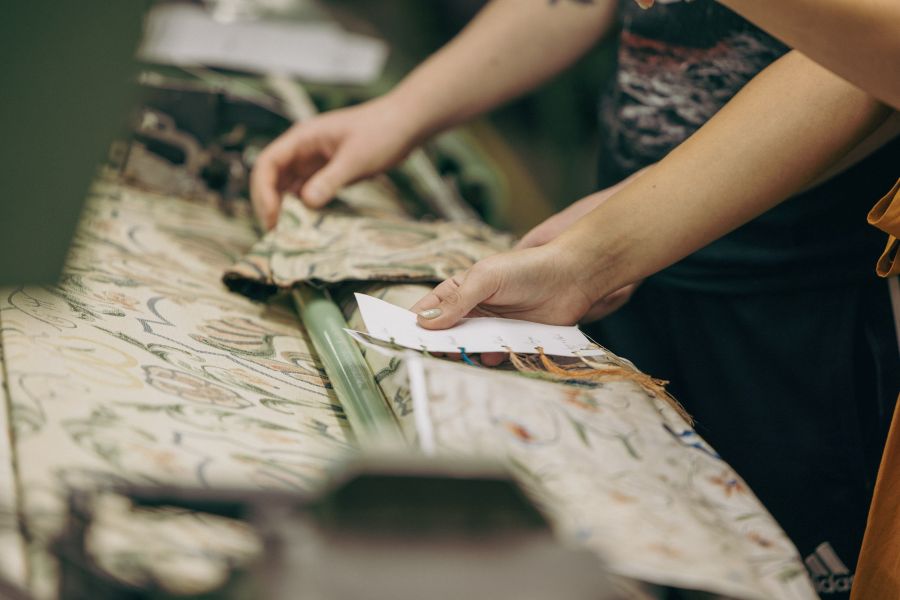 Humphries Weaving are one of three esteemed companies weaving at the Historic Sudbury Silk Mills, designing and weaving bespoke fabrics for artists, interiors designers, architects, ecclesiastical projects, historic houses and many other iconic institutions.
Humphries Weaving are one of three esteemed companies weaving at the Historic Sudbury Silk Mills, designing and weaving bespoke fabrics for artists, interiors designers, architects, ecclesiastical projects, historic houses and many other iconic institutions.
